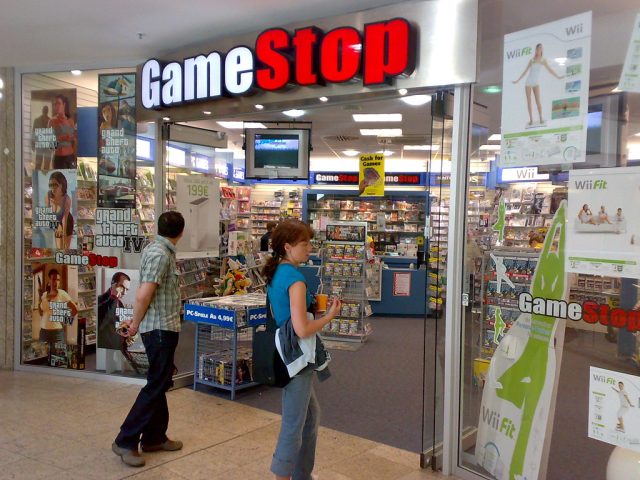The latest quarterly earnings report from GameStop doesn't show much sign of a turnaround for the long-troubled game retailer. Sales were down 26.7 percent year over year for the April through June quarter. Even accounting for permanent store closures and COVID-related reduced operating hours, so-called comparable "same-store" sales were still down 12.7 percent year over year. GameStop's already depressed stock is down nearly 8 percent on the news, as of this writing.
GameStop still publicly sees an "opportunity to capitalize" on the upcoming release of new Sony and Microsoft consoles, which could help turn its business around in the short term. But there's some reason to believe the coming generation of consoles could actually make GameStop's long-term prospects worse, thanks to console options that get rid of disc drives entirely.
Putting on a brave face
In an earnings call, GameStop CEO George Sherman acknowledged that "there has been growth in digitally downloaded games" and said GameStop is "not debating the growth of digital gaming." But he also tried to put a positive spin on the fate of GameStop's physical game sales going into the next generation of consoles.
"First, new consoles have a disc drive," Sherman said. "So for the next seven years, the consoles will play both the physical and digital software that we sell."
That's only partially true, though. Both the Xbox Series S and the PlayStation 5 Digital Edition actually won't have a disc drive. And while GameStop does sell some digital software, the bulk of its business comes from the sale of new physical games and high-margin pre-owned games.
We don't know what percentage of consumers will opt for these disc-free consoles, of course. A GameStop survey from 2013 suggested that 60 percent of consumers wouldn't even consider a console that doesn't play used games. Attitudes may have changed in the last seven years, but it's hard to know just how much.
Still, lower hardware costs could definitely make discless consoles an attractive option to many potential customers this generation. The Xbox Series S is $200 cheaper than the more-powerful, disc-drive-equipped Series X, a sum that could go toward a lot of digital game purchases.

Regardless, every console gamer that gives up a disc drive in the next generation is a consumer that is going to have much less need for a retailer like GameStop going forward. And while some of those players might already be ignoring games on disc, right now they at least have the option of buying some titles on disc (especially if there's a particularly attractive collector's edition available).
Starting in November, a significant chunk of the console market won't even be able to consider GameStop's bread-and-butter disc sales.
Is the Internet really all that great?
Sherman confirmed in the earnings call that GameStop will sell these disc-drive-free consoles in its stores, a move akin to a world where Tower Records decided to sell iPods as its physical album sales cratered. But Sherman also tried to maintain a healthy skepticism that next-generation console buyers would want to give up their disc drives.
"Consumers like the physical aspects of games," he said. "They collect them and they add value as a trade-in. So as software continues to evolve with dramatically better graphics, it does not take up valuable storage space and discs are available to those without broadband Internet."
There is definitely a segment of the market that continues to value physical games, and Sherman is right that "the life of physical game is here to stay for the foreseeable future." At the same time, though, the size of that market is already shrinking, even as disc drives are ubiquitous on home consoles.
In the quarter ending in June, Sony said that a full 74 percent of its full game sales came as digital purchases. Even if that number is temporarily inflated by coronavirus-related stay-at-home orders, the 53-percent digital full game sales ratio Sony reported last year was not.
It's not hard to find other Read More – Source
[contf] [contfnew] 
arstechnica
[contfnewc] [contfnewc]







